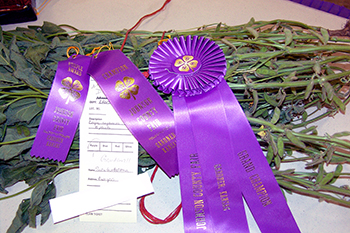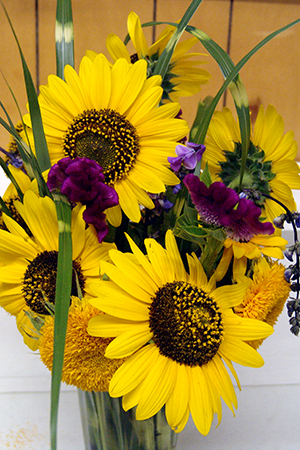4-H Plant Science — More than Just Growing Plants
 The value of learning life skills is often cited as one of the greatest outcomes of belonging to 4-H. 4-H teaches youth many skills that can be applied to life later on. Plant science or horticulture is one of those special 4-H projects that is more than just growing a garden of tomatoes or pretty marigolds. It helps develop the youth so they are ready for life’s challenges later.
The value of learning life skills is often cited as one of the greatest outcomes of belonging to 4-H. 4-H teaches youth many skills that can be applied to life later on. Plant science or horticulture is one of those special 4-H projects that is more than just growing a garden of tomatoes or pretty marigolds. It helps develop the youth so they are ready for life’s challenges later.
Gardening is also a way for kids to discover science, especially botany, biology and chemistry. Learning sun patterns and a plant’s watering needs introduces a child to another science, meteorology. Eating the fruits of their labor teaches patience, and just adds to the fun.
At some point most people become homeowners. With the joys of home ownership comes the realization of lawn and yard maintenance. Maintaining a beautiful property helps retain home values and creates a great place to live. Skills learned in the 4-H program can be built upon in adulthood.
The skills you used as a youth to prepare your exhibits for the county fair teach the importance of growing grass, trees, shrubs and flowers. 4-H plant science projects give you a hands-on canvas to practice and hone the skills.
Kansas horticulture judging contest
One of the best opportunities to learn through the plant science project is judging. Kansas conducts a horticulture judging contest. To master this contest youth must learn over a hundred plants, understand the basis of plant growth and how to select the best plants for the landscape. What better way to engage youth than through fun competition. Of course another learning opportunity is the county fair.
 Johnson County Fair
Johnson County Fair
The fair allows 4-Hers to display their efforts. In some ways the fair contest is a beauty pageant for fruits, vegetables and flowers. A fair judge is looking for an exhibit that is at its peak of perfection. They are looking for an entry that makes them want to pick up and eat it, or take in the beauty of the flower.
A successful fruit and vegetable exhibit should be free from insects and diseases, blemishes and be ripe and ready. The showmanship piece of the contest comes into play as the exhibit should also be uniform, free from dirt and neatly displayed. Flowers should also be at their peak, free from damage and true to variety. All this can be learned from Extension publications or learned first-hand by doing.
When attending the fair be sure to pop into the plant science displays in the 4-H Green Building and admire the effort these youth put into their exhibit. The exhibit represents their work and showcases what they have learned that can be applied later in life.
Not a 4-H member? You can still experience the fun of the county fair by entering. Open class has a wide range of classes to enter your plant science projects. Who knows, that flower gracing your garden may be an award winner.
By Dennis Patton, County Extension Agent/Horticulture